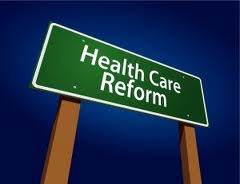What are Grandfathered Plans?
Group health plans in existence as of March 23, 2010, when the Affordable Care Act was signed into law may be considered “Grandfathered.” Grandfathered plans are exempt from certain health care reform provisions, whereas non-grandfathered plans must comply with the healthcare reform mandates. Group health plans with “grandfathered” status may have significant consequences if they change to non-grandfathered/ACA compliant plans, including an increase in the cost of benefits and change of benefits.
What changes trigger loss of “grandfathered” status?
Any one of the following plan changes will cause a grandfather group health plan to lose its “grandfathered” status:
- An increase in percentage of cost-sharing requirement, such as coinsurance, regardless of the amount;
- An increase in the deductible or out-of-pocket maximum by an amount that exceeds medical inflation, plus 15% points;
- An increase in copayments (if the increase exceeds the greater of five dollars, adjusted for medical inflation or medical inflation +15% points);
- A decrease in the employer’s contribution rate by more than 5% (measured for each tier of coverage);
- Elimination of all or substantially all benefits to treat a particular condition;
- Adding or decreasing a new overall dollar limit to the plan that was in a fact as of March 23, 2010; or
- The carrier no longer offers “grandfathered” plans.
Any of the following changes in the plan may also trigger the loss of grandfathered status of the plan, depending on the level of change:
- The addition of a new prescription drug tier with new cost-sharing;
- An increase in cost sharing related to wellness incentives or penalties;
- An increase in retiree self-pay rates;
- Transfer of employees into a less generous plan or plan option where the transfer is not due to a bona fide employment-based reason; and
- Certain changes made in response to the Mental Health Parity and addiction equity at, such as increasing cost sharing for medical/surgical benefits, instead of lowering cost sharing for mental health and/or substance abuse disorder benefits.
NOTE: The employer must include a notice about the plans grandfather status insignificant participant communications, such as enrollment materials and summary plan descriptions. The notice does not need to be included with the SBC or EOBs). A model notice is available at: DOL Grandathered Model Notice
What changes do not trigger loss of “Grandfathered” status?
The U.S. Departments of Health and Human Services (HHS), Department of Labor (DOL), and Department of Treasury recently amended the requirements for maintaining grandfathered status under health care reform. Effective November 15, 2010 you can retain your plans grandfathered status after changing carriers or moving from a self-insured to a fully insured plan, as long as you have not made other changes that would cause the plan to lose grandfathered status. In addition, changing third-party administrators, pharmacy benefit managers, or changing the plans networks will not cause a plan to lose its grandfathered status.
According to HHS, they estimate the following:
- 40% to 67% of individual policies will lose grandfathered status by 2011;
- 34% to 64% of large employer group plans (100 or more employees) will lose their grandfather status by 2013; and
- 49% to 80% of small employer group plans (3 to 99 employees) Will lose their grandfather status by 2013.
Loss of grandfathered status coincides with the effective date of the design changes. Also, once an employer loses its grandfathered status, they cannot return to set status at a later date. With all of the changes with the affordable care act, the decisions of whether or not to remain grandfathered must be carefully considered, as it has broad implications for the health plan and it’s participants.
Resources for Grandfathered Health Plans:
- Amendment to Interim Final Rules
- Fact Sheet on Amendment
- Public Comments on Amendment
- Regulation
- Frequently Asked Questions
- Provisions Summary Chart
- Model Notice | en español
- Public Comments on Regulation
If you would like to further discuss the pros and cons of “Grandfathering” and would like to strategize a solution for your company, please call MNJ Insurance Solutions at (714) 716-4303.
This content is provided for informational purposes only. While we have attempted to provide current, accurate and clearly expressed information, this information is provided “as is” and MNJ Insurance Solutions makes no representations or warranties regarding its accuracy and completeness. The information provided should not be construed as legal or tax advice or as a recommendation of any kind. External users should seek professional advice form their own attorneys and tax and benefit plan advisers with respect to their individual circumstances and needs.





